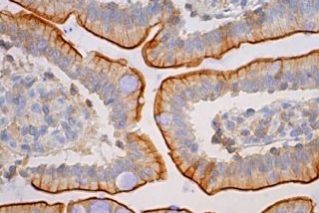Gut hormones
Gut hormones play an important role in the regulation of fat production in the body. A key hormone released a few hours after eating shuts down fat production by regulating gene expression in the liver. Nevertheless, this regulation is abnormal in obesity, researchers from the University of Illinois Urbana-Champaign found in a new study.
The study
The study, led by Jongsook Kim Kemper, professor of molecular and integrative physiology, and Young-Chae Kim, research scientist, was published in the journal Nature communication. After eating, the pancreas produces insulin, which stimulates the liver to transform digested food into fat for storage in a process known as lipogenesis.
A few hours later, when the body begins to transition to fasting mode, the liver slows down fat production. While the insulin pathway has been studied in depth, how lipogenesis is disabled remains largely unknown, Kemper said. In the new study, Kemper’s team found that the gut hormone FGF15 in mice and its human analog FGF19 turn off fat-producing genes in the liver. Hormones are released a few hours after a meal, when the body switches from eating to fasting. FGF15/19 activates regulatory molecules to enter the nucleus, the core of the cell where DNA is stored, and it inhibits gene expression.
The function of FGF15/19 hormone
“This gut hormone actually acts as a disruptor of the action of insulin and specifically inhibits lipogenesis in the liver, so it becomes strictly regulated. For example, when you eat cookies your body releases insulin, which promotes lipogenesis. If lipogenesis does not decrease later when the body is fasting, surplus fat will accumulate in the liver, and hormone FGF19 cuts fat production”, Kemper said.
Furthermore, in experiments with obese mice and human patients with nonalcoholic fatty liver disease, the researchers found that the way to shut down fat production was disrupted. The genes that regulate the gut hormone were very active, the regulatory molecules activated by FGF15/19 did not even penetrate the nucleus, and the deletion markers were not attached to the genes.
The future
“This study could be very important to understand this pathway and how it is abnormal in obesity and nonalcoholic fatty liver disease,” Kemper said. “It contributes to our understanding of obesity, nonalcoholic fatty liver disease, and other metabolic disorders. It could also have implications on other diseases such as diabetes or certain types of cancer for which obesity is a risk factor. “Based on this study, we could look for therapeutic treatment options to target that pathway and improve the regulatory function.”
Reference: Kim YC, Seok S, Zhang Y, et al. Intestinal FGF15/19 physiologically repress hepatic lipogenesis in the late fed-state by activating SHP and DNMT3A. Nat Commun. 2020 Nov 24;11(1):5969.
Liink: https://www.sochob.cl/web1/la-regulacion-de-la-produccion-de-grasa-es-anormal-en-la-obesidad-muestra-un-estudio/
Date: November 25th, 2020
Source: https://newsbeezer.com
Nutrigenomics Institute is not responsible for the comments and opinions included in this article






